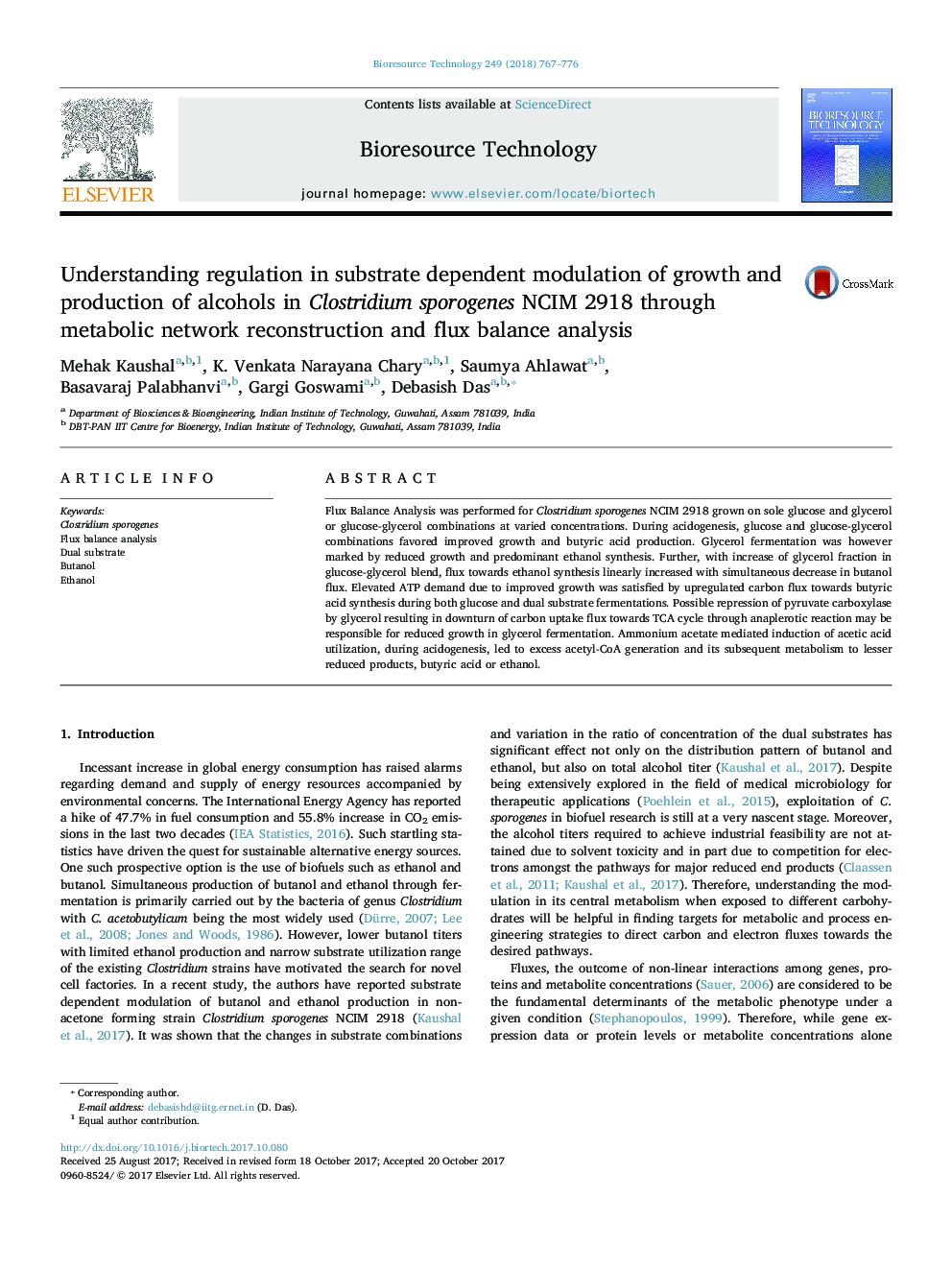| Article ID | Journal | Published Year | Pages | File Type |
|---|---|---|---|---|
| 7069063 | Bioresource Technology | 2018 | 10 Pages |
Abstract
Flux Balance Analysis was performed for Clostridium sporogenes NCIM 2918 grown on sole glucose and glycerol or glucose-glycerol combinations at varied concentrations. During acidogenesis, glucose and glucose-glycerol combinations favored improved growth and butyric acid production. Glycerol fermentation was however marked by reduced growth and predominant ethanol synthesis. Further, with increase of glycerol fraction in glucose-glycerol blend, flux towards ethanol synthesis linearly increased with simultaneous decrease in butanol flux. Elevated ATP demand due to improved growth was satisfied by upregulated carbon flux towards butyric acid synthesis during both glucose and dual substrate fermentations. Possible repression of pyruvate carboxylase by glycerol resulting in downturn of carbon uptake flux towards TCA cycle through anaplerotic reaction may be responsible for reduced growth in glycerol fermentation. Ammonium acetate mediated induction of acetic acid utilization, during acidogenesis, led to excess acetyl-CoA generation and its subsequent metabolism to lesser reduced products, butyric acid or ethanol.
Related Topics
Physical Sciences and Engineering
Chemical Engineering
Process Chemistry and Technology
Authors
Mehak Kaushal, K. Venkata Narayana Chary, Saumya Ahlawat, Basavaraj Palabhanvi, Gargi Goswami, Debasish Das,
